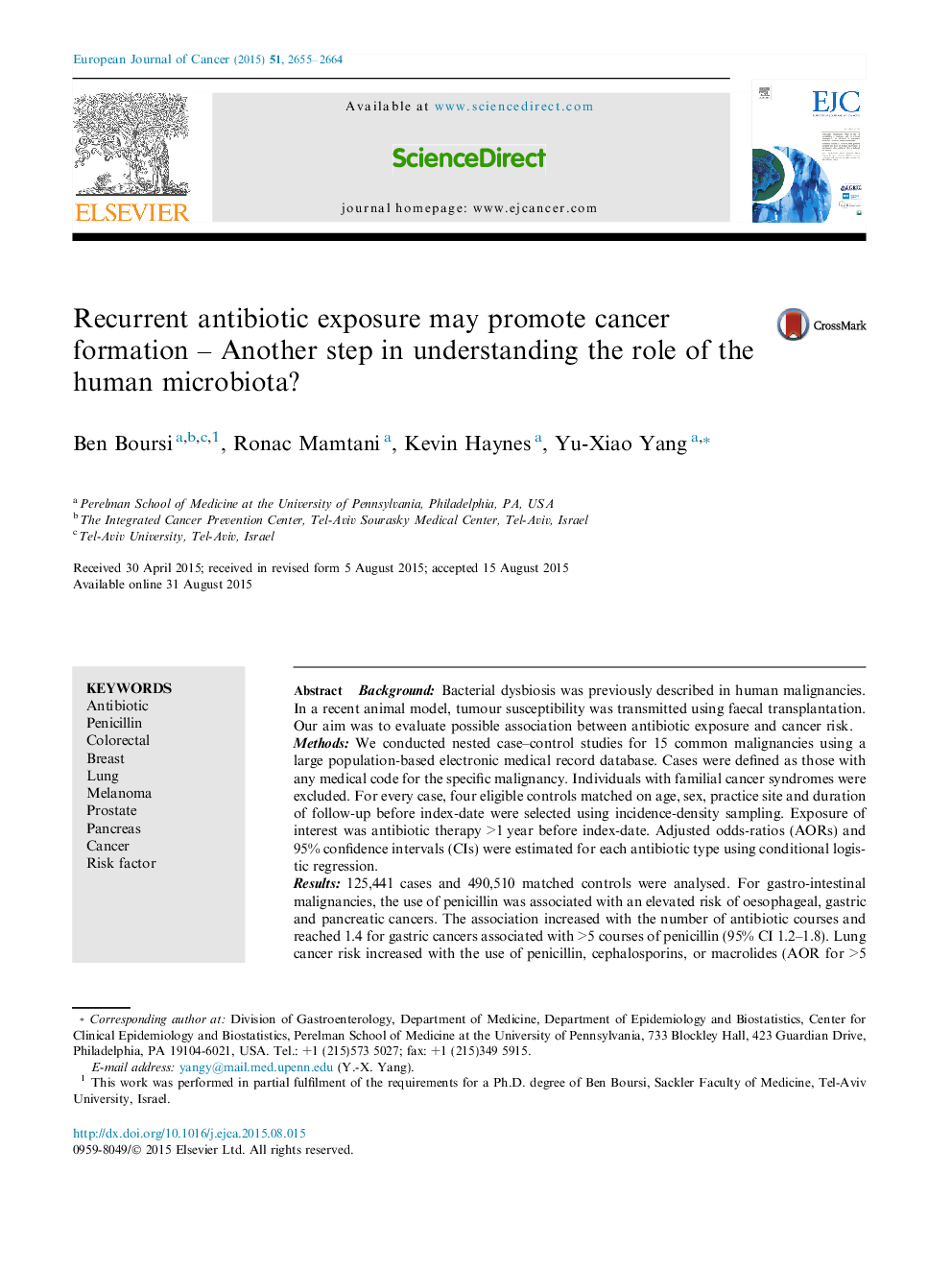| کد مقاله | کد نشریه | سال انتشار | مقاله انگلیسی | نسخه تمام متن |
|---|---|---|---|---|
| 2121632 | 1547090 | 2015 | 10 صفحه PDF | دانلود رایگان |
• Antibiotic exposure can alter the diversity of the human microbiota.
• Bacterial dysbiosis was described in cancer patients.
• In our study recurrent exposure to certain antibiotics increased cancer risk.
• No association was found with anti-virals and anti-fungals.
• No association was found with melanoma or carcinoma of the cervix.
BackgroundBacterial dysbiosis was previously described in human malignancies. In a recent animal model, tumour susceptibility was transmitted using faecal transplantation. Our aim was to evaluate possible association between antibiotic exposure and cancer risk.MethodsWe conducted nested case–control studies for 15 common malignancies using a large population-based electronic medical record database. Cases were defined as those with any medical code for the specific malignancy. Individuals with familial cancer syndromes were excluded. For every case, four eligible controls matched on age, sex, practice site and duration of follow-up before index-date were selected using incidence-density sampling. Exposure of interest was antibiotic therapy >1 year before index-date. Adjusted odds-ratios (AORs) and 95% confidence intervals (CIs) were estimated for each antibiotic type using conditional logistic regression.Results125,441 cases and 490,510 matched controls were analysed. For gastro-intestinal malignancies, the use of penicillin was associated with an elevated risk of oesophageal, gastric and pancreatic cancers. The association increased with the number of antibiotic courses and reached 1.4 for gastric cancers associated with >5 courses of penicillin (95% CI 1.2–1.8). Lung cancer risk increased with the use of penicillin, cephalosporins, or macrolides (AOR for >5 courses of penicillin: 1.4 95% CI 1.3–1.6). The risk of prostate cancer increased modestly with the use of penicillin, quinolones, sulphonamides and tetracyclines. The risk of breast cancer was modestly associated with exposure to sulphonamides. There was no association between the use of anti-virals and anti-fungals and cancer risk.ConclusionRecurrent exposure to certain antibiotics may be associated with cancer risk in specific organ sites.
Journal: European Journal of Cancer - Volume 51, Issue 17, November 2015, Pages 2655–2664
